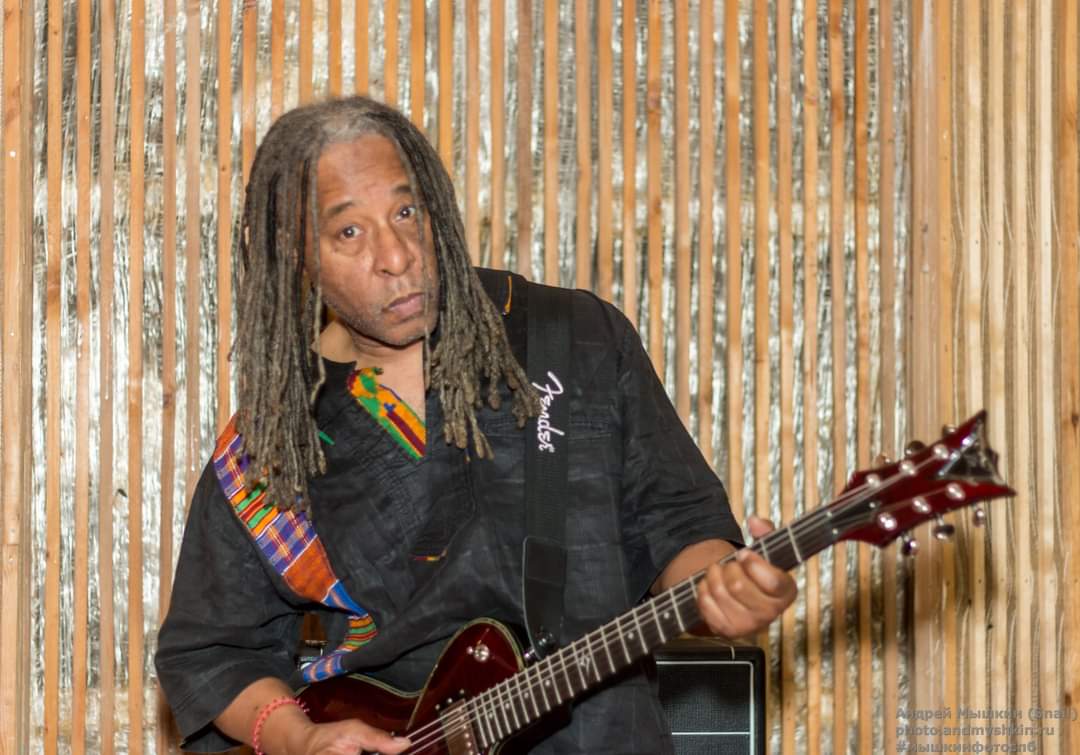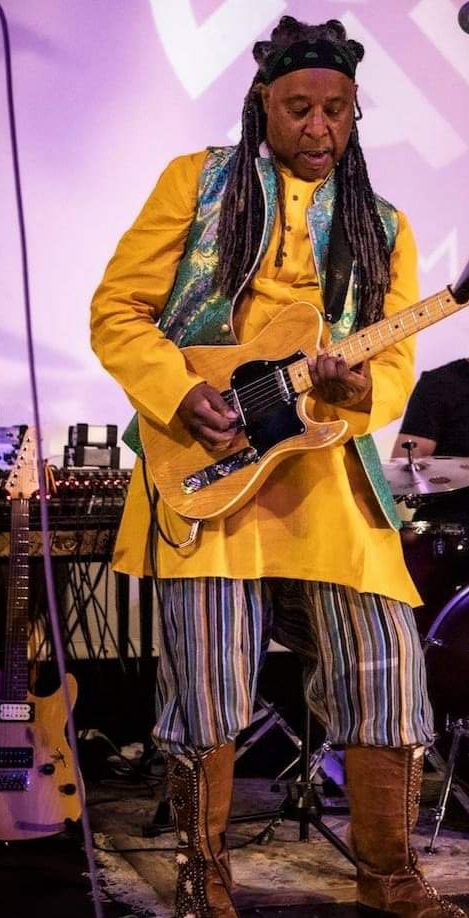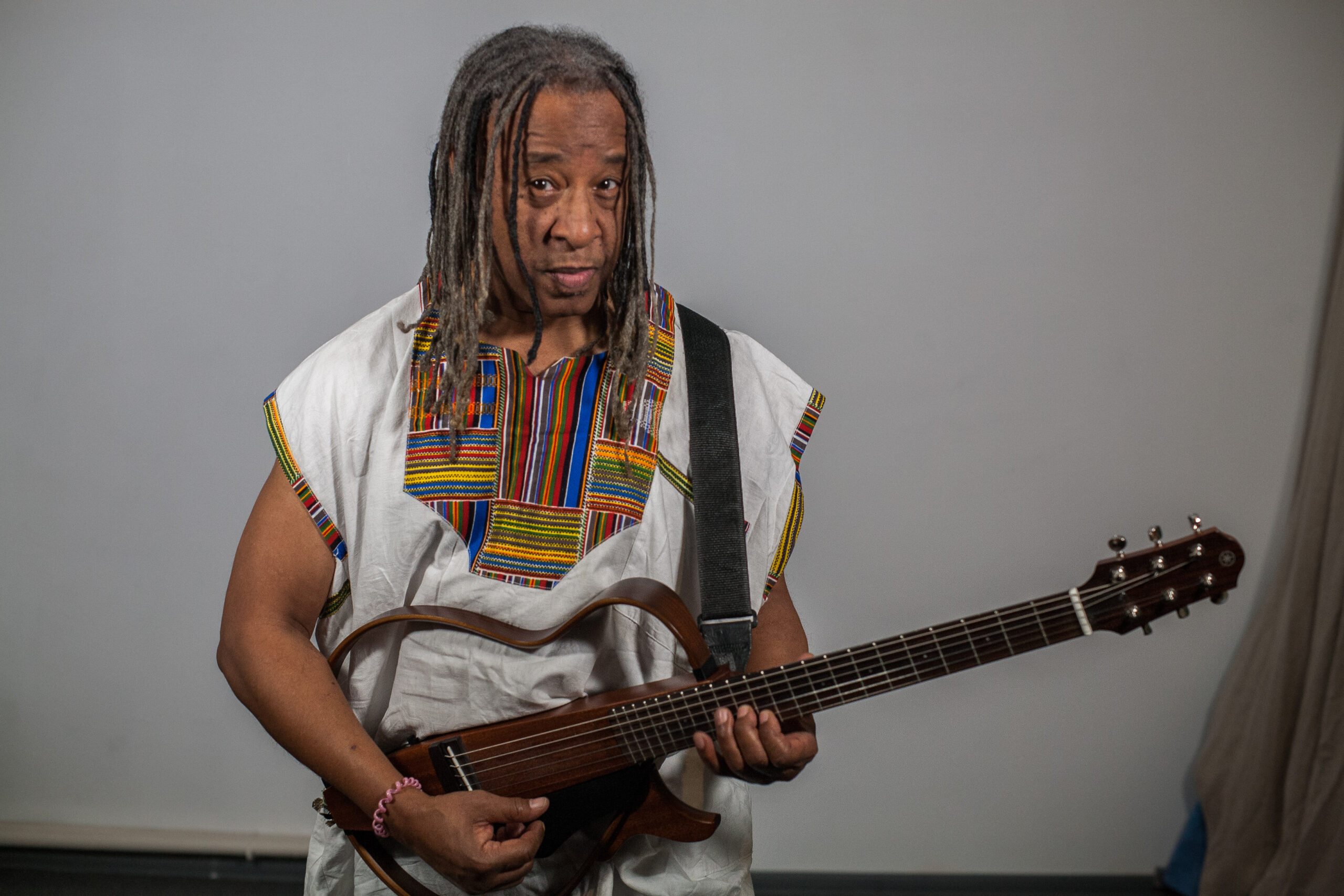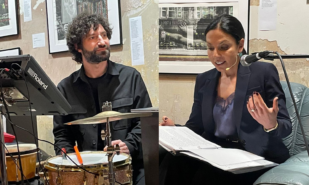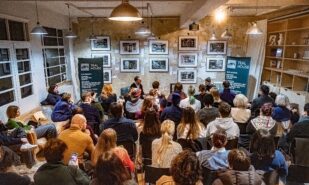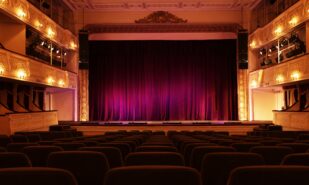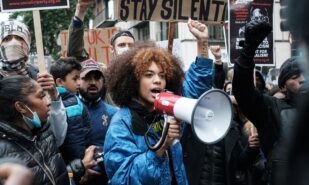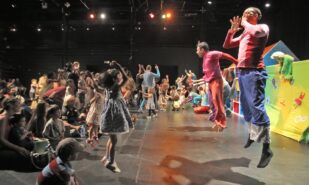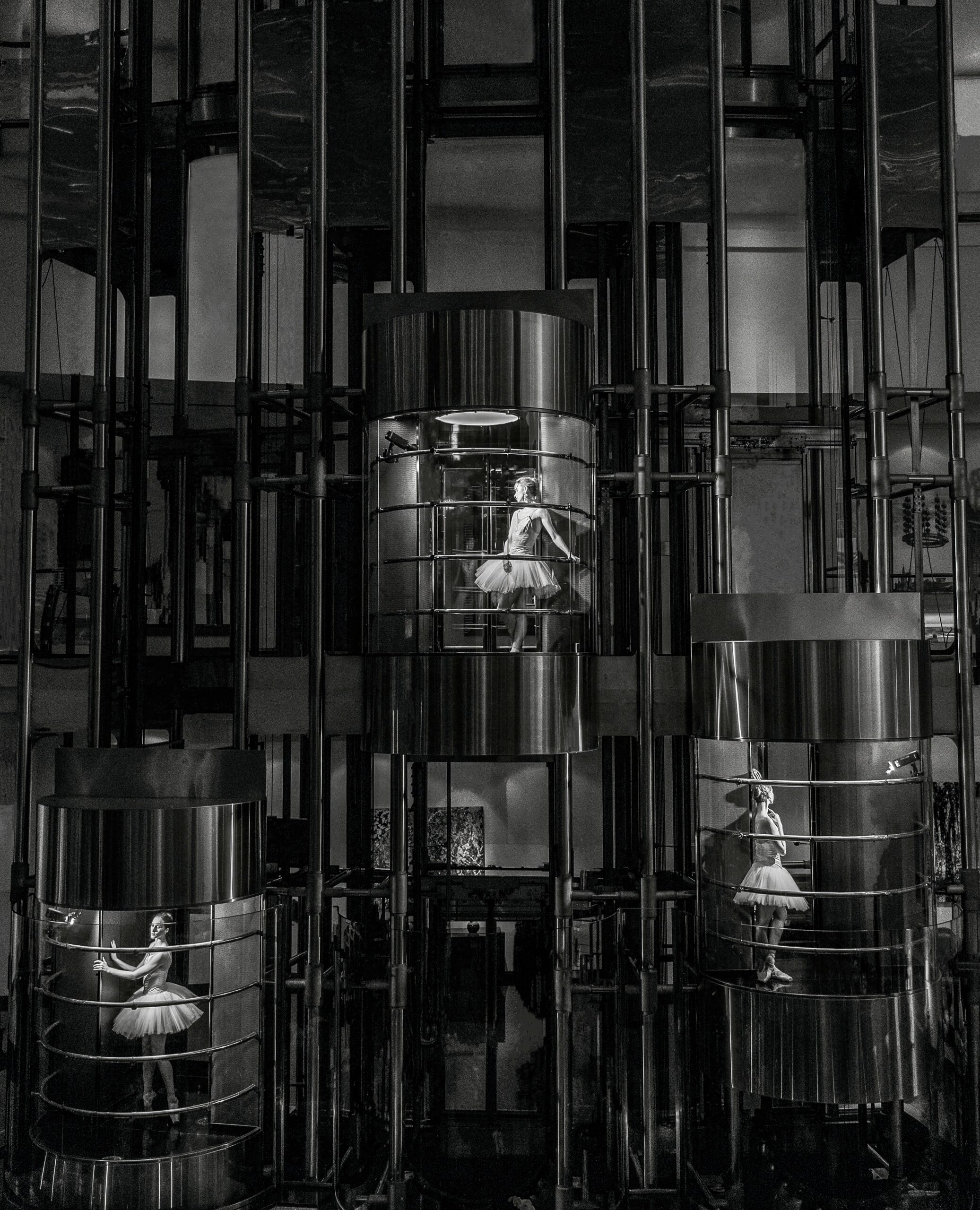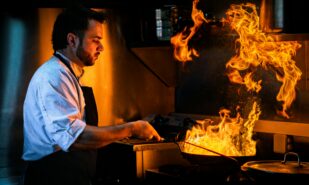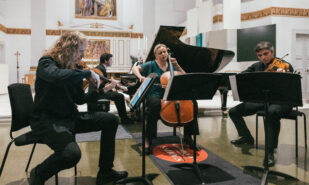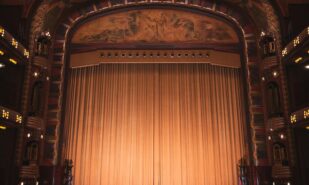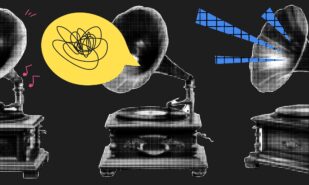Iconic Gregg Kofi Brown: I started out as a busker… the girls loved it!
Gregg Kofi Brown is a Ghanaian musician, producer and songwriter who has been part of the legendary band Osibisa, the pioneers of the fusion of rock with African and Caribbean music for over four decades. In his solo career, Brown has worked with the likes of Sting, Des’ree, Gabrielle, Stanley Jordan and Billy Cobham, as well as Ed Sheeran, with whom he will release a track soon. LC spoke with Gregg about his creative journey and endeavours, and how important it is for a musician to be sincere and not lose oneself.
Gregg, how did you get started in music?
I was born in Tennessee and grew up in the culture of traditional black southern music: gospel and blues. My familythen moved to Alaska where I lived from the age of five toseven years old. I started to listen to pop music: the Everly Brothers, Elvis Presley and Little Richard. Then, we moved from Alaska. This time to Riverside, California, which is about 45 miles from Los Angeles. I lived on the road: Riverside (where my mother and stepfather were), California, and Memphis (because my grandmother was there). I went there and back every year or every two years. And lived among the southern culture of soul blues, surf music (in California), pop music, The Carpenters, jazz.
By the way, it’s quite funny, the Beatles were quite popular, we sang their songs… But the first single I bought was the Rolling Stones. It was called “Satisfaction”. One day I was driving home with a friend and his father, I heard this song on the radio and said: “Oh, stop the car!” We drove past my favourite record store. “Don’t worry, I’ll continue walking home!”- jumped out of the car and ran to the music store.
My performing experience began primarily in church and school choirs, as well as singing with my cousins in Memphis on a street corner.
How did your own musical style develop?
I started playing an instrument (it was a cello) and studied classical music. Then I switched to the double bass and combined it with singing. I got my first electric bass, and then… I was gifted a six-string guitar! When I was 16 or 17, I was already in a band and we played music from artists like James Brown and also funk. I played bass on some songs, and sang on others, trying to dance like James Brown. We had one boy who danced better, really, just like James Brown…
Nevertheless, my education is more in the field of classical music and singing. I sang in the classic madrigal Chamber Singers. But I liked Led Zeppelin, Jimi Hendrix, Santana, bands that played African and Latin rhythms (Afro-Latin), and this really influenced my worldview.
And then I put together a group called Shango. We played Afro-Latin blues. Once we opened for Azteca and Malo. It consisted of George Santana, Carlos, Santana’s brother. Aztec had two percussionists, the Escovito brothers, and alsoa young Sheila E, who worked with Prince and was quite popular, she played drums. My journey into the world of music began there!
When I was in college, I was the entertainment director. Promoted one of Elton John’s first concerts in America, jazz concerts, rock. And then I moved to Los Angeles and started playing with local funk bands and singing a little. I did my first tour with Joe Cocker playing bass. We played about 12 shows… and I got kicked out. Because I had a fight with someone from the group. I was young and daring! But Joe loved me, he was great.
So I got kicked off the tour, but I went back on tour with a guy named Eric Burdon, who had a band called The Animals. And he organized his own unit. We played concerts in arenas and theatres in America. After the tour I regrouped with my band and we lived in Los Angeles, in a band house on a hill overlooking Chinatown. But each of us did our own thing. I got up early, rehearsed, then wrote songs, made business calls, and at night we played concerts. It was the routine of a professional musician.
A few years later when I was about 28 years old, I took an acting class as part of a government program that encouraged people to work in areas that interested them. I was paid for my studies and had a stable salary! Experienced actors, producers, and writers participated in the program. I studied at the comedy theatre. And at the same time, I gave concerts. However, I then decided to leave Los Angeles for London after receiving an invitation to join a band. The people who supported me in acting weren’t too happy about it…
In London, I started working with a guitarist named Peter Green, who founded Fleetwood Mac. We played a few showsand I learned a lot by just being around him. Peter was mentally challenged but you know, he was still a great guitarist.
What year did you come to London?
This was in the 1980s. And in 1982 I joined a group called Osibisa, which I listened to as a child. And I worked with them for more than 40 years! But during the breaks I did other things. For example, in 1985 I composed a hit called “Baby Talk.” It was the number one song on the American Billboarddance charts.
I toured a lot with Osibisa until 1989. But at some point, I started to get tired of the music business, I got a job singing and doing voice-over for television commercials. I then joined “Equity”, the Union of Actors. I started acting and singing in plays and musicals. I did a show in London’s West End called “A Tribute to the Blues Brothers” at what used to be called the Whitehall Theatre, but now I think it’s the Trafalgar Studio Theatre. It’s right on Trafalgar Square. The man who invested in the show was Sean Connery, who played James Bond. The show became really famous and was very wild! However, my main role was Blueette. There were three Blueettes and two Blues Brothers in the play. We each had our own solo parts, mine was singing “Midnight Hour” and dancing in the style of James Brown. The girls loved it!
Later I moved on to the Buddy Holly musical. And after that… I became a single father. My first wife died while I was in the Blues Brothers. My son initially lived with his aunt, but decided he wanted to stay with me.
Soon I got a call from Osibisa and they said, “Gregg, we need you to tour again in America, Canada, Europe and South Africa.” I got offered a part to play The Specialist opposite Kim Wilde in the Who’s rock opera “TOMMY”. During this time I met my second wife.
We had two sons plus my eldest son. To take care of my family I had to stop touring… there was not enough money. And by 2005, I decided that I would return to university, get a master’s degree, and start teaching. However, even while teaching, my reputation as a musician was still high. I travelled around the world and recorded a solo album in 2004-2005. Sting was there, Billy Cobham, Des’ree, Gabrielle, Stanley Jordan – all these artists I recorded with. An Italian production company released my first solo album, and it included a song I wrote with Sting, “Lullaby for an Anxious Child,” as well as “Shadow,” a hit that I learned had been successful in Russia for quite some time. At that moment everything was fine with me. Life, however, seemed a little crazy, and probably too crazy for my wife. That’s why she divorced me.
In 2016, I went on my first tour of Russia and played 10 concerts. The first one was in Irkutsk. It was amazing! Since I lived in Alaska, I felt that the people there were very similar to Russians (Alaska used to belong to Russia). I even went to school with children whose great-great-grandparents were Russian. So, when I arrived in Irkutsk, I felt comfortable, like at home. Lake Baikal is a very spiritually enriched place. There is an island where shamans study. And I am very sensitive to spiritual things when I am around such energies.
The next year I stayed in Russia for quite a long time, participated in shows on television and radio, and toured a lot. During the second round, I got sick. Because the agent (Belarusian from New York) who booked my trip made me fly on planes every day, and this was bad for my blood pressure. I stopped working with him. But by that time I already had my own contacts. In short, I began to travel to Russia about four to five times a year, went on tour in Siberia, played in St. Petersburg, Kazan, Krasnodar, Moscow, participated in festivals as a judge, for example, in St. Petersburg in “Ya Mogu!”.
When the pandemic came, everything stopped. And then the war started… I went to Russia in December 2021 when the borders opened, and then again in 2022. I had to fly from London via Turkey and couldn’t use my credit card so I had to take cash. I called the concerts “My Peace Tour” because I know many people in Russia are against the war but can’t say anything.
Meanwhile, in London, I participated in the preparation of an album dedicated to the 50th anniversary of Osibisa. I wrote or co-wrote 11 of the album’s 14 songs. It was well received by the press, got a five-star rating, and opened us up to a younger audience. But… I quarrelled with the management.
We were doing Peter Gabriel’s festival called WOMAD and I got into an argument with the manager. I still had my Osibisa, and he left and started another Osibisa. And right now I’m in an uphill legal battle over Osibisa… You know, trying to protect the band’s legacy, but it costs me so much money. I don’t even know why I started this… But when someone says: “Thank you very much!” and just wants to grab his own, I answer: “Oh no, you can’t do that, that’s not right.” I’ll see how it goes, maybe I’ll just wash my hands of it…
I have done a lot in music and as a solo artist, I still work with bands. I have a band called Roots 8, and I have another Peter Green tribute band from Fleetwood Mac called “Supernatural”. And there are solo things. For example, I just recorded a song with Ed Sheeran. I’m releasing an album that will be a mixture of Afrobeats and Amapiano. Another guy I work with is DJ Paleface, he had a hit with Drake called “One Dance.” We’re making an amapiano track. You know, I have come a long way from those humble beginnings when I sang in a choir, played in an orchestra, and sang on the street.
The work that you are doing now… Would you say that this is a continuation of Osibisa’s endeavours in the 70s? Or is this something new?
Unfortunately, all the guys from the older Osibisa generation of the 70s have passed away. But we are trying to preserve the music and pass it on to young people. Because its roots come from Ghana, West Africa. Osibisa are heroes in Ghana! They are the first African band to really hit the West. Three guys are from Ghana, one is from Nigeria, another guy is from Antigua, another is from Granada in the West Indies, and one is from Trinidad. But the music, the whole rhythm, is African. Now I’ve connected with such New York DJs as Louis Vega and Josh Milan. I’m going to release an album of remixes and a few fresh tracks, adding a little Afrobeat, Afro–swing & Afro-house.
So yeah, I’m writing a whole series: there’s a bit of Fela Kuti, but also a bit of Burna Boy. Such a mixed atmosphere in one album.
Samples of recent work:
Video 1: Collaboration with Faye aka Triple Goddess London:
Video 2: Collaboration with DJ Paleface:
How would you describe your music yourself, is there a message that you send to people?
My message is that people are united in peace, love and harmony. It’s a kind of unity! People should come together to fight oppression.
I have a tropical reggae album that I haven’t released yet.There’s a blues album that goes back to when I was living in Memphis that tells stories of different people and things. But even on a blues album, you can hear the African influence. And when I do a jazz-funk number, you might hear an African chant or an African bass line or something like that. I would say my music is authentic, with a touch of soul in my voice. I have a song that I recorded with Billy Cobham. I sing it in an African language, Ghanaian. It’s like mutated music, a hybrid. It took a long time to develop this style. And now, perhaps, my creative state is better than ever.
Video 3, Gregg plays “Lonely Light of Love” on guitar:
How do you feel about this kind of mixing of cultures when someone like Ed Sheeran or Justin Bieber uses Afrobeat or Afrobeats in their music?
As long as they open up these genres and other people can get something useful out of it, I’m fine with it, at least as far as Ed Sheeran is concerned. I don’t know about Justin Bieber, but I think Justin does too, I hope so. I know that Ed was in Ghana and recorded with Fuse ODG and also with Burna Boy andhelped open doors for guys who come from Africa. He’s not like the typical white guy who could rip off the style and the music and say, “Yeah, that’s me.” But there are people who simply culturally rob others… This is unfair! But I respect Ed, his guys, and Eminem. They get together, bring their individual styles, and combine them. And that is amazing!
You travelled a lot around Russia, why did you keep coming back?
It was about the authenticity of the music and the people. And, you know, I had a couple of Russian girlfriends. But it was mainly because of my media partners. I love having these connections. For example, people in St. Petersburg, from the “Ya Mogu!” festival, when the pandemic broke out, called and said: “Gregg, are you okay? You need money? Do you need anything? I replied, “I’m fine. I’m just looking forward to coming back and working with you guys.” But I was very pleased that they called and asked. That’s it, friendship and dedication that goes beyond business. They respect what I bring, and I will always respect what they do. I even wanted to learn Russian. I have an app that teaches phrases…
I also work with Olga [Glazova – LC]. We started projects about five years ago. I recorded Olga in London with a woman who plays the Chinese flute. So, the Russian gusli and the Chinese flute came together. Hybrid again!
And the traditional question: what advice would you give to young musicians who are just starting out?
I would say be true to yourself, no matter what you feel. Just be sincere! Of course, take into account all the musical influences, but do it how you feel.
Obviously, the situation is different now. The music business is a lot harder, it’s harder to make a living. So be open to other things. You can teach music; you can do mixes or do the technical side of music. Consider different directions. Also, most people use social media now, use it to your advantage.But the main thing that separates millions of people who just think they want to make music from a real artist is authenticity.

